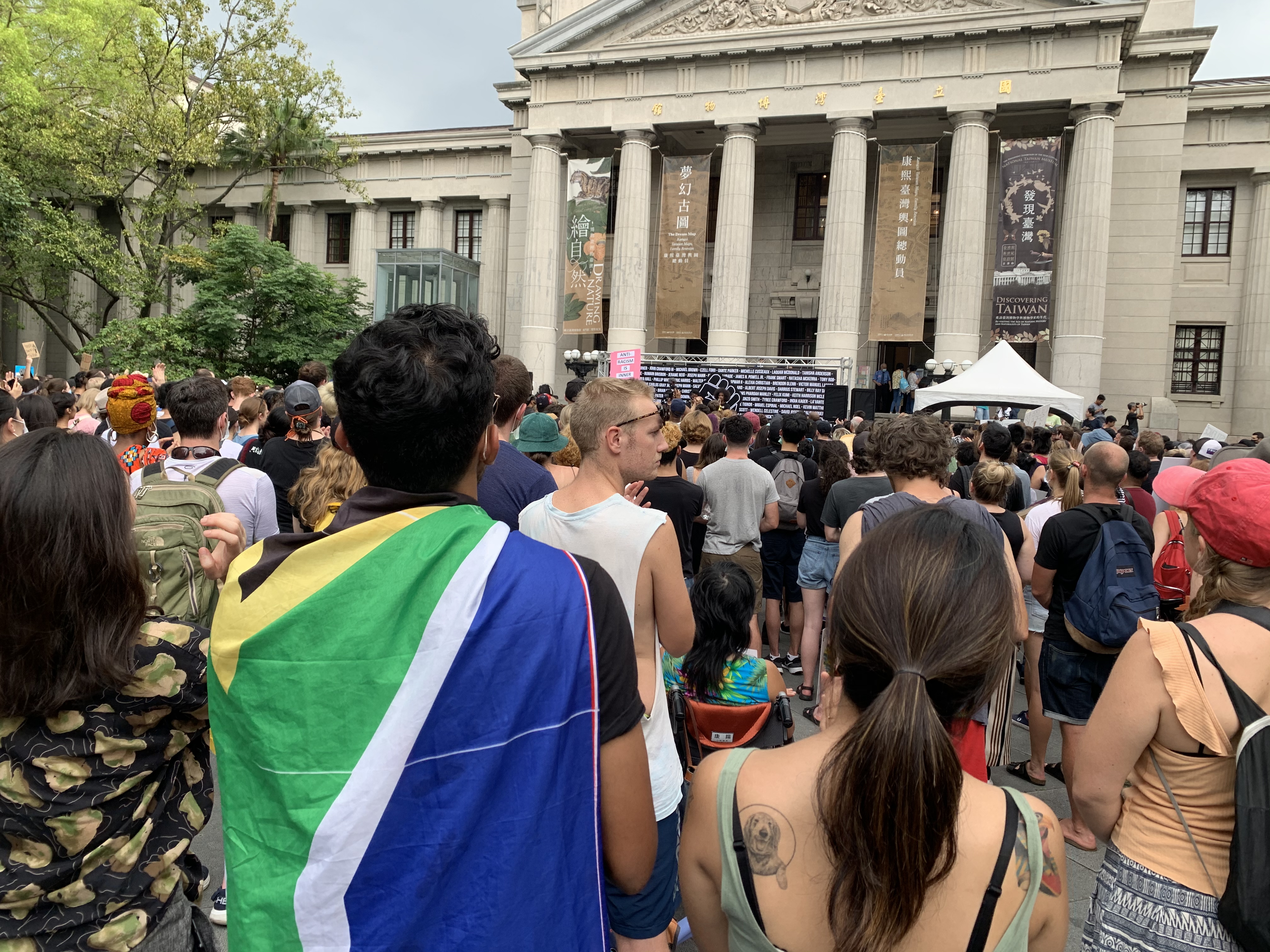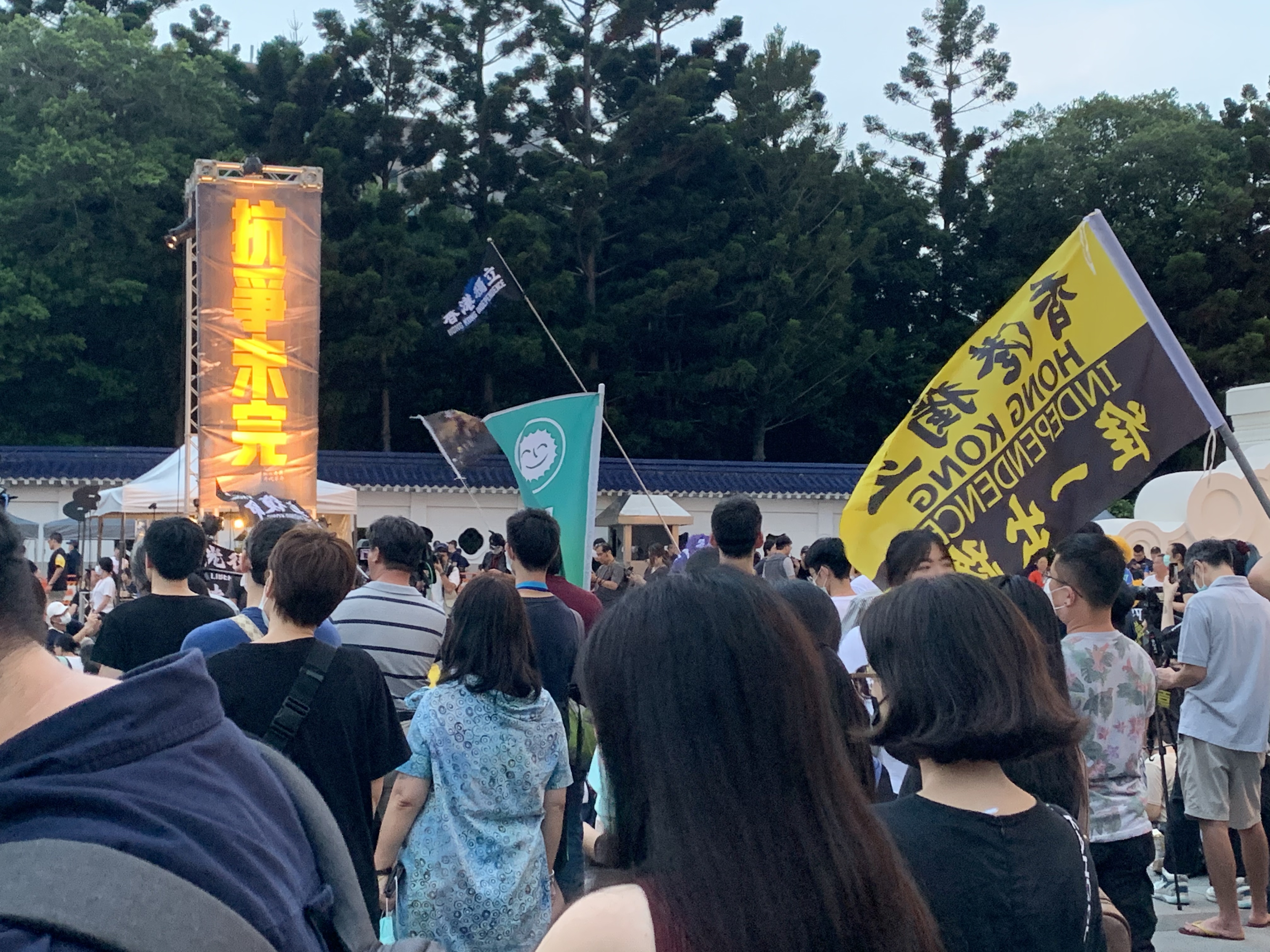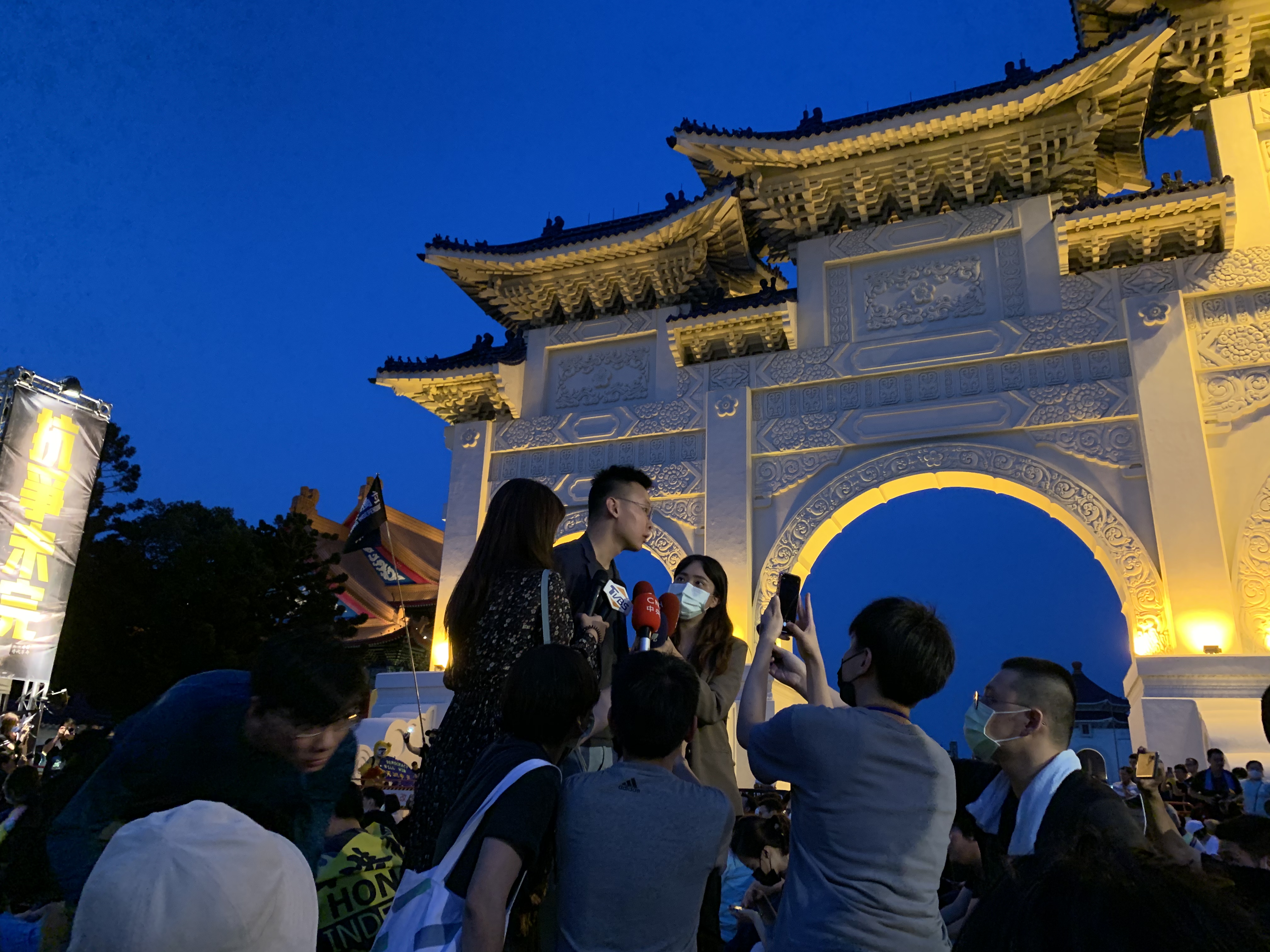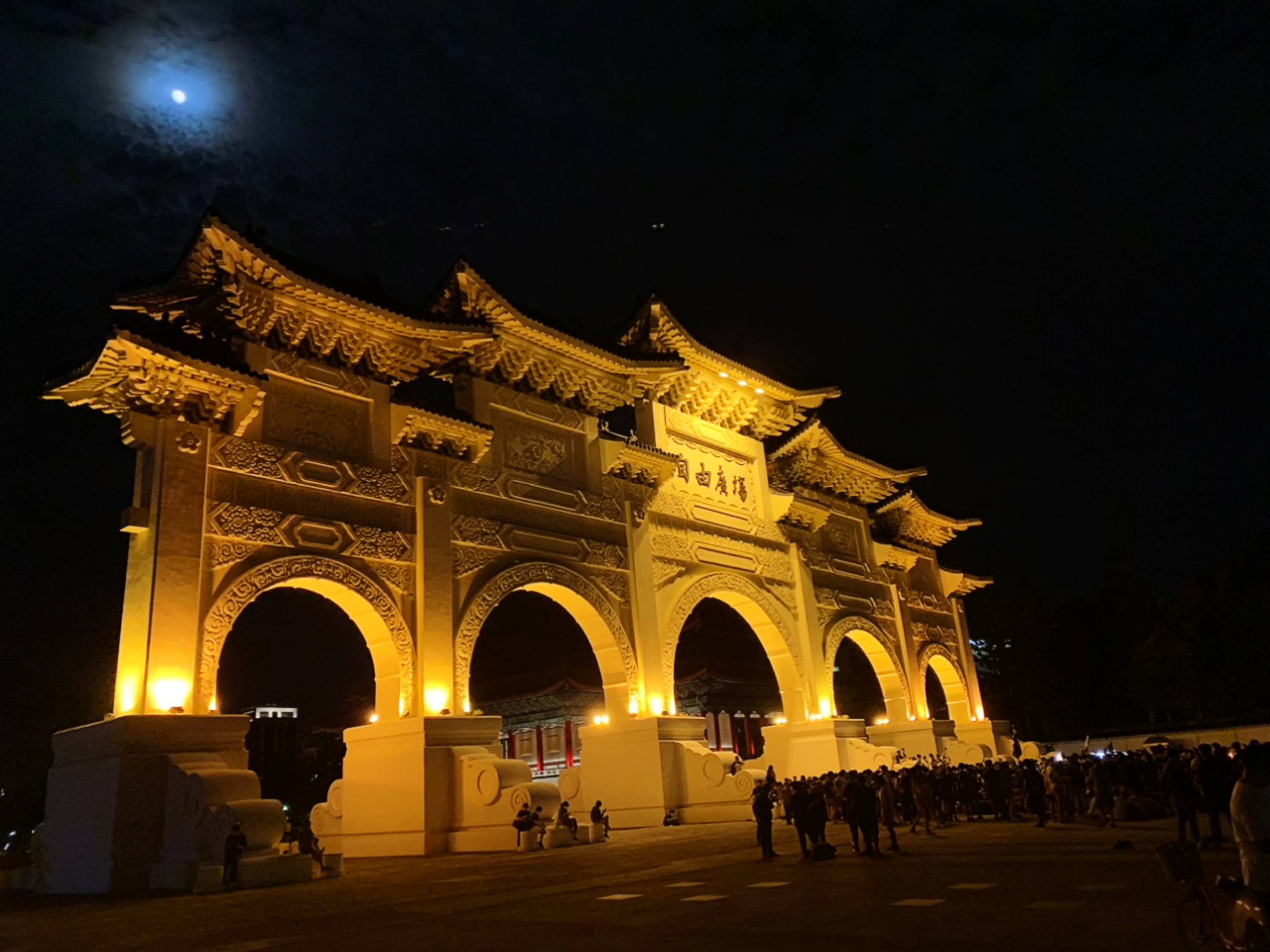
I'm still on hiatus -- my advisor's forthcoming feedback on my draft will determine how much longer that will last. But, in my absence, I thought it would be interesting to open up Lao Ren Cha to other voices, especially Taiwanese voices, with a possible series of guest posts.
This is my first experiment in guest posting, from Eric, a Taiwanese Canadian, written as a reaction to this article on the left's silence on genocide in China. It generally fits with the editorial line here at Lao Ren Cha ("editorial line" being fancy talk for "my opinions") while introducing a new style and perspective into the mix. Enjoy!
- Jenna
With the recent change in mainstream media narrative on the Chinese regime, accelerated by the coronavirus pandemic, one would not expect too much of a political cost for raising objections to its actions. Threats and attacks on neighbors, technology theft, fentanyl exports, loan shark diplomacy, concentration camps, genocide, live organ harvesting, systematic societal control — anyone who has been paying attention should have long recognized the threat to liberal values posed by this regime, yet the headlining leaders of the Liberal Left have been derelict for some time on this file. Sadly, this is not a surprise to those of us who have been watching this space for a while and have long lamented this problem.
For anyone who has generally progressive views and supports Taiwan and its continuing existence as a free and democratic country this contradiction is particularly painful, as many writers in Taiwan have noted. I have always been and continue to be a supporter of most of the values espoused by the moderate Liberal Left: social justice, environmental protection, universal human rights, yet I have little faith in international institutions and believe in healthy defense, training and advanced weaponry--peace through strength. Realizing that you have loved ones, friends, places and things that you value under constant threat of annihilation enforces pragmatism.
Personally, becoming deeply skeptical of the capital-L Liberal Left (as an ideological brand or label defined by its leading voices rather than a fuzzy set of held values) was a long time in the making, as I watched liberal papers such as the Guardian give voice to awful regime apologists, saw socially progressive celebrities and politicians look down in meek silence or even take pro-Beijing stances, or journalists unthinkingly regurgitating official narratives, making it easier for Beijing to calculate in its own favor as it continued to trample over every value they purported to hold dear.
For me, the last straw was the response when President Donald Trump accepted a phone-call from Tsai Ing-Wen shortly after winning her 2016 election as President of Taiwan, and the cacaphony of supposedly progressive voices from that corner screaming bloody murder, warning of apocalypse and doom should anyone cross Beijing, heaven forbid the leader of the United States, for all of his faults, should take a symbolic phone call from the democratically elected, female President of one of the most free, liberal and progressive democracies in the world and risk angering a brutal regime that enslaves its own citizens and threatens others.
That so many failed to even see this hypocrisy or consider that even a broken clock might be right twice a day made me lose much of my faith in peoples' ability to think critically, on both sides of the political spectrum. The biggest heartbreak came from the disappointment of seeing well-known people who I liked and admired unthinkingly retweeting such Chicken-Littlism and the false narratives that go with it or adding to the chorus.
Before anyone can accuse me of naiveté for thinking Trump did this out of the goodness of his heart, of course political and national interests are always considered, and I am OK with that. The minor symbolism of taking the call was enough.
So here we are, more than 4 years later and yet it seems for many, none the wiser. Just a few months ago, those same commentators were defending the WHO despite clear evidence that they had actively and knowingly caused the COVID19 epidemic to get worse, all in deference to China. While Trump was wrong to pull out of the WHO (how can the USA advocate for Taiwan’s inclusion if it’s not even there?), holding a benefit concert that made the WHO look like the victim in all this was laughable.
Liberals often pride themselves on their critical thinking skills, and yet swallow CCP narratives that a phone call to a democratic leader friendly to the US is a diplomatic crisis. They pride themselves on logic and facts, yet threw a concert to support an organization that was proven to spread lies that harmed global health. They pride themselves on standing for access to human rights…unless the people fighting for those rights are far away. The right thinks masks are mind control devices, poverty will go away if you ignore it, and that it’s acceptable to put children in cages. How are they right about China while we writhe in indecisiveness? How are we losing the moral high ground on this?
The world did not end in war over a phone call. Universities still compromised their values for unsustainable profits, financiers continued to try to reap profits from the Chinese market, cadre money still got laundered in real-estate and commodities still got sold. On the other hand, the pandering obsequiousness with which the UN, governments, corporates and media treated the CCP regime, abetted by the silence of the Liberal Left, resulted in a pandemic that killed thousands, wrecked countless lives and made the world more dangerous and unstable.
And still, the biggest call to action on the left seems not to be the ongoing genocide in Xinjiang, standing with Hong Kong, or supporting Taiwan, but fear that standing up to the CCP is simply too scary to contemplate. A lot of this stems from thinking everything the right says must be wrong, so they must be wrong about China.
The world did not end in war over a phone call. Universities still compromised their values for unsustainable profits, financiers continued to try to reap profits from the Chinese market, cadre money still got laundered in real-estate and commodities still got sold. On the other hand, the pandering obsequiousness with which the UN, governments, corporates and media treated the CCP regime, abetted by the silence of the Liberal Left, resulted in a pandemic that killed thousands, wrecked countless lives and made the world more dangerous and unstable.
And still, the biggest call to action on the left seems not to be the ongoing genocide in Xinjiang, standing with Hong Kong, or supporting Taiwan, but fear that standing up to the CCP is simply too scary to contemplate. A lot of this stems from thinking everything the right says must be wrong, so they must be wrong about China.
Honestly, they are indeed wrong about almost everything, and Trump is not a reliable ally. Nobody who calls Xi Jinping a “good friend” and doesn’t seem fazed by concentration camps could ever be. But, when it comes to the CCP, the Liberal Left is the one the wrong. Trump is terrible, but when he criticizes China, he’s not wrong just because he’s Trump.
At this time, I wonder if it would be too small-minded of me to contact those who unknowingly supported the stance of the CCP regime in admonishing the US President for taking Tsai's call four years ago, and see if their view had changed in hindsight. I fear, however, that I would be disappointed.
Fortunately, critical voices are starting to come out on the Left, surprisingly from parts of Europe, of all places, with the German Green Party or Czech Pirate Party, for example. In the US Congress, important legislation regarding Hong Kong, Taiwan and Xinjiang passed unanimously — meaning Democrats and Republicans, liberals and conservatives alike, supported it. There is still time to push Joe Biden away from Obama-era China doves and towards policy advisors who are more realistic about the CCP, and to embrace bipartisan efforts in congress.
We still don't know if even this pandemic is enough to overcome inertia and make people realize that they are affected by what happens in Asia (the last Federal election in Canada was a hold-your-nose-and-vote affair), but hopefully change will come. Regardless, the left-right dichotomy, with its simplifications and polarizing power, has shown that it is no longer useful for the messy, chaotic world we live in.
We still don't know if even this pandemic is enough to overcome inertia and make people realize that they are affected by what happens in Asia (the last Federal election in Canada was a hold-your-nose-and-vote affair), but hopefully change will come. Regardless, the left-right dichotomy, with its simplifications and polarizing power, has shown that it is no longer useful for the messy, chaotic world we live in.
























